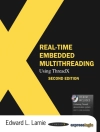Riding on the success of 3D cinema blockbusters and advances in stereoscopic display technology, 3D video applications have gathered momentum in recent years. 3D-TV System with Depth-Image-Based Rendering: Architectures, Techniques and Challenges surveys depth-image-based 3D-TV systems, which are expected to be put into applications in the near future. Depth-image-based rendering (DIBR) significantly enhances the 3D visual experience compared to stereoscopic systems currently in use. DIBR techniques make it possible to generate additional viewpoints using 3D warping techniques to adjust the perceived depth of stereoscopic videos and provide for auto-stereoscopic displays that do not require glasses for viewing the 3D image.
The material includes a technical review and literature survey of components and complete systems, solutions for technical issues, and implementation of prototypes. The book is organized into four sections: System Overview, Content Generation, Data Compression and Transmission, and 3D Visualization and Quality Assessment. This book will benefit researchers, developers, engineers, and innovators, as well as advanced undergraduate and graduate students working in relevant areas.
Table des matières
Section 1: System Overview.- An Overview of 3D-TV System Using Depth-Image-Based Rendering.- Section 2: Content Generation.- Generic Content Creation for 3D Displays.- Stereo Matching and Viewpoint Synthesis for FPGA Implementation.- DIBR-Based Conversion from Monoscopic to Stereoscopic and Multi-view Video.- Virtual View Synthesis and Artifact Reduction Techniques.- Hole Filling for View Synthesis.- LDV Generation from Multi-view Hybrid Image and Depth Video.- Section 3: Data Compression and Transmission.- 3D Video Compression.- Depth Map Compression for Depth-Image-Based Rendering.- Effects of Wavelet-Based Depth Video Compression.- Transmission of 3D Video over Broadcasting.- Section 4: 3D Visualization and Quality Assessment.- The Psychophysics of Binocular Vision.- Stereoscopic and Autostereoscopic Displays.- Subjective and Objective Visual Quality Assessment in the Context of stereoscopic 3D-TV.- Visual quality assessment of synthesized views in the context of 3D-TV.
A propos de l’auteur
Ce Zhu is currently an Associate Professor at the School of Electrical & Electronic Engineering, Nanyang Technological University, Singapore. His research interests include image/video coding, streaming and processing, 3D video, joint source-channel coding, multimedia systems and applications. He serves as an Associate Editor of IEEE Transactions on Broadcasting, IEEE Signal Processing Letters, Multidimensional Systems and Signal Processing (Springer), and as an Editorial Board Member of Multimedia Tools and Applications (Springer).












